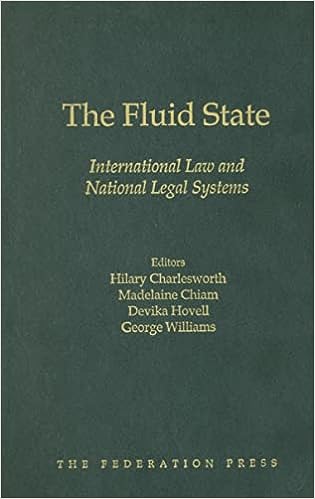The Fluid State: International Law and National Legal Systems
Federation Press, $125 hb, 286 pp
Common to all mankind
What role should international law play in the domestic legal sphere? The author of the Institutes of Justinian stated that ‘[e]very community governed by laws and customs uses partly its own law, partly laws common to all mankind’. Nevertheless, a certain view propounds that international law is an unstable or subversive intrusion into the processes of democratic sovereignty and the pedigree of national law. Such a stance, while persistent, denies social fact; the reach of international legal regulation is unprecedented and national bureaucracies increasingly operate beyond state boundaries. Such is the reality of the ‘Fluid State’ which, the editors of this volume suggest, will alter orthodox understandings of the interrelationship between international and national law.
The subject matter that this absorbing collection traverses is vast, but the editors have generally succeeded in assembling a dynamic range of introductory and advanced material, much of which can be accessed by a reader arriving fresh to the issues. Certain subjects demand deeper treatment than they receive here: the role of international law in constitutional interpretation, the subject of heated dispute in recent High Court cases, receives surprisingly little attention. But the contributions to this volume, from scholars of politics, public law and international law, reflect innovative and critical attempts to move beyond traditional analysis.
Continue reading for only $10 per month. Subscribe and gain full access to Australian Book Review. Already a subscriber? Sign in. If you need assistance, feel free to contact us.








